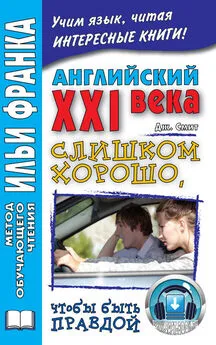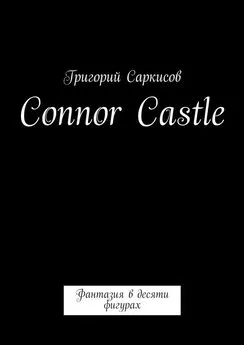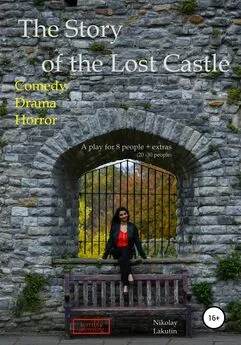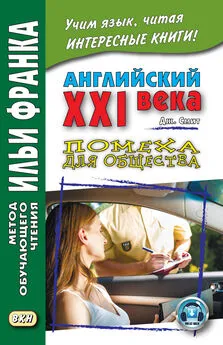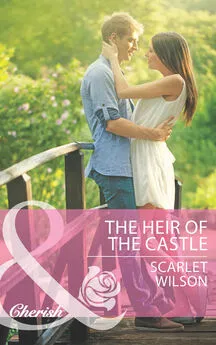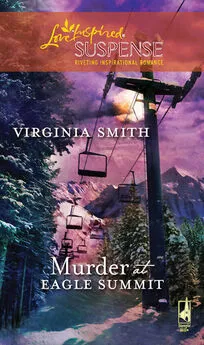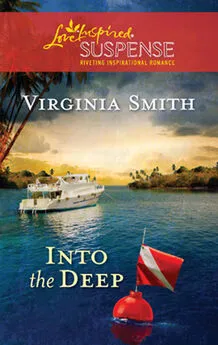Dodie Smith - I Capture the Castle
- Название:I Capture the Castle
- Автор:
- Жанр:
- Издательство:неизвестно
- Год:неизвестен
- ISBN:нет данных
- Рейтинг:
- Избранное:Добавить в избранное
-
Отзывы:
-
Ваша оценка:
Dodie Smith - I Capture the Castle краткое содержание
I Capture the Castle - читать онлайн бесплатно полную версию (весь текст целиком)
Интервал:
Закладка:
"The Keys" is painted cream and has very irregular gables; beside it is an enormous chestnut tree--not in bloom yet but its leaves are at their very best, all new and vividly green, with some of the sticky buds
still unopened. There is a bench with a long table against the front
of the inn, partly shaded by the chestnut--and sitting there, with
stone bottles of ginger beer, were Rose and Neil.
It turned out that she had come across the fields from Four Stones to get a cake of scented soap from the post-office shop (topaz is giving us a shilling a week pocket-money while the Vicar's twenty pounds holds out), and had found Neil there buying cigarettes.
"And when I said you'd be along soon, she very obligingly waited," he told Simon. Perhaps I imagined it, but I did think he sounded a bit
satirical.
We sat down, Simon by Rose. Neil asked me what I would have to drink.
I was going to say lemonade and then a wild idea struck me: "Could I have a cherry brandy his I've always wanted to taste it."
"You can't drink liqueurs before lunch," said Rose in a very grown-up way.
"Yes, she can if she wants to," said Neil, going in to the bar. Rose shrugged her shoulders rather histrionically and turned to talk to
Simon. He did look pleased to see her. After a few minutes he
suggested we should all lunch there and called out to Neil to arrange it.
As a rule, Mrs. Jakes only serves bread-and-cheese but she managed
cold sausages as well, and some honey and cake. Neil ate his sausage
with honey, which simply fascinated me-but by then almost everything
was fascinating me. Cherry brandy is wonderful.
But I don't think my haze of content was all due to the cherry
brandy--the glasses are so small. (i had lemonade for my thirst.) It
was everything together that was so pleasant--the food out-of doors the sunshine, the sky through the chestnut tree, Neil being nice to me and Simon being more than nice to Rose;
and, of course, the cherry brandy did help.
While Neil was getting me my second glass I took a good look at Rose.
She was wearing her very oldest dress, a washed-out blue cotton, but it looked exactly right for sitting outside an inn. One branch of the
chestnut came down behind her head and, while I was watching, a strand of her bright hair got caught across a leaf.
"Is that branch worrying you?" Simon asked her.
"Would you like to change places his I hope you wouldn't because your hair looks so nice against the leaves."
I was glad he had been noticing.
Rose said the branch wasn't worrying her in the least.
When Neil came back with my second cherry brandy, she said:
"Well, now that we've finished lunch, I'll have one, too." I knew very well she had been envying mine. Then she called after him:
"No, I won't -- I'll have creme de menthe."
I was surprised, because we both tasted that at Aunt Millicent's once and hated it heartily; but I saw what she was after when she got
it--she kept holding it up so that the green looked beautiful against her hair, though of course it clashed quite dreadfully with the
chestnut leaves.
I must say she was being more affected than I ever saw her, but Simon appeared to be enchanted. Neil didn' the winked at me once and said:
"Your sister'll be wearing that drink as a hat any minute."
Neil is amusing- though it is more the laconic way he says things than what he actually says; sometimes he sounds almost grim and yet you know he is joking. I believe this is called wisecracking.
Rose was right when she said he thinks England is a joke, a comic sort of toy, but I don't believe he despises it, as she feels he does;
it is just that he doesn't take it seriously. I am rather surprised
that Rose resents this so much, because England isn't one of her
special things in the way it is mine-oh, not flags and Kipling and
outposts of Empire and such, but the country and London and houses like Scoatney. Eating bread-and-cheese at an inn felt most beautifully
English- though the liqueurs made it a bit fancy. Mrs. Jakes has had
those two bottles for as long as I can remember, both full to the
top.
We sat talking until the church clock struck two and then the nicest
thing of all happened: Miss Marcy began a singing class. The windows
of the schoolhouse were open and the children's voices came floating
out, very high and clear. They were doing rounds;
first, "My dame hath a lame, tame crane," then "Now Robin lend to me thy bow," and then "Summer is acumin" which is my very favorite tune--when I learnt it at school it was part of a lesson on Chaucer and Langland, and that was one of the few times when I had a flash of being back in the past. While I listened to Miss Marcy's children singing I seemed to capture everything together mediaeval England, myself at ten, the summers of the past and the summer really coming. I can't imagine ever feeling happier than I did for those moments- and while I was
telling myself so, Simon said:
"Did anything as beautiful as this ever happen before ?"
"Let's take the kids some lemonade," said Neil. So we got two dozen bottles and carried them across. Miss Marcy nearly swooned with
delight and introduced Simon to the children as "Squire of Goandend and Scoatney."
"Go on, make a speech- it's expected," I whispered. He took me seriously and gave me an agonized look. Then he told them how much he had enjoyed the singing and that he hoped they would all come to
Scoatney one day and sing for his mother. Everyone applauded except
one very small child who howled and got under her desk- I think she was scared of his beard.
We left after that and the Cottons said they would drive us home.
Neil went to settle with Mrs. Jakes and I routed Heloise out of the
kitchen- she was bloated with sausage. When I came back Simon was
leaning against the chestnut staring at the schoolhouse.
"Will you look at that window ?" he said.
I looked. It is a tallish window with an arched top. On the sill
inside stood a straggly late hyacinth with its white roots growing in water, a jam jar of tadpoles and a hedgehog.
"It'd be nice to paint," I said.
"I was just thinking that. If I were a painter I believe I'd always paint windows."
I looked up at the inn.
"There's another for you," I told him.
Close to the swinging signboard with its crossed gold keys there was a diamond-paned lattice open, showing dark red curtains and a little
sprigged jug and basin, with the brass knob and black rail of an iron bedstead behind. It was wonderfully pain table "Everywhere one
turns--" He stared all around, as if he were trying to memorize
things.
The Vicar's housekeeper drew the blinds down against the sun, so that the vicarage seemed to close its eyes.
(Mrs. Jakes had told us the Vicar was out or we would have called on
him.) Miss Marcy's children were very quietI suppose they were all
guzzling lemonade.
There was a moment of great peace and silence. Then the clock struck
the half-hour, a white pigeon alighted with a great flutter of wings on the inn roof just above the open window; and Neil started the car.
"Don't you think this is beautiful?" Simon asked him, as we went over.
"Yes, pretty as a picture," said Neil, "the kind you get on jigsaw puzzles."
"You're hopeless," I said, laughing. I did know what he meant, of course; but no amount of pretty-pretty pictures can ever really destroy the beauty of villages like Godsend.
Rose went in the back of the car with Simon.
Heloise and I were at the front--part of the time Neil drove with his arm round her.
"Gosh, what sex-appeal she has," he said. Then he told her she was a cute pooch, but would she please not wash his ears his Not that it
stopped her; Heloise can never see a human ear at tongue-level without being a mother to it.
When we got back to the castle I felt it was only polite to ask them
in, but Neil had made an appointment for Simon with the Scoatney agent.
Simon is obviously most anxious to understand everything about the
estate, but I don't think the agricultural side comes naturally to him.
It does to Neil- which seems a waste when he isn't staying in
England.
"Did Simon fix anything about seeing us again ?"
I asked Rose, as we watched them drive away.
"Don't worry, they'll be round." She spoke quite scornfully; I resented it after the Cottons had been so nice to us.
"Very sure of yourself, aren't you ?" I said.
Then something struck me.
"Oh, Rose- you're not still counting it against them- what I overheard them say about you?"
"I am against Neil. He's my enemy." She flung back her head dramatically.
I told her not to be an idiot.
"But he is- he as good as told me so, before you came this morning.
He said he was still hoping Simon would come back to America with
him."
"Well, that doesn't make him your enemy," I said. But I must admit that his manner to her is a bit antagonistic. Of course, owning
Scoatney is really what is likely to keep Simon in England, but I
suppose marrying an English girl would tend to as well.
"Yes, it does- anyway, I hate him. But he shan't, he shan't
interfere."
She was flushed and her eyes had a desperate look--a look that somehow made me ashamed for her.
"Oh, Rose, don't bank on things too much," I begged.
"Simon may not have the faintest idea of proposing-American men are used to being just friends with girls. And they probably think we're
too comic for words--just as Neil thinks the English country "Blast Neil," she cried furiously. I would rather see her furious than
desperate- it made me think of the day she turned on a bull that was
chasing us. (it turned out to be a rather oddly shaped cow.)
Remembering this made me feel very fond of her, so I told her all the nice things Simon had said about her on our walk to Godsend. And I
made her promise never to tell him I had lied to him- even if she
marries him. I should hate him to know, even though I did do it to be kind. Oh, I see more and more I ought never to have let her get it out of me that conversation I over heard. It not only started her off
hating Neil, but has made her extra relentless to Simon--she will marry him or burst.
We found Topaz asleep on the drawing-room window-seat-she looked as if she had been crying, but she woke up quite cheerfully and said our
lunch was in the oven, between plates (we had it for tea). When we
finished telling her about the Cottons, she said:
"How on earth are we to return their hospitality?
I've been wondering ever since we went to Scoatney.
Dinner's impossible-with no dining-room furniture. Could we manage a
picnic lunch?"
"No, we couldn't," said Rose, "we'd only make a mess of it. Leave them alone--let them run after us."
She went off upstairs. Topaz said: "Don't blame her too much the first time girls feel their power it often takes them like that."
Then she yawned so much that I left her to finish her nap.
I got my journal from the barn and remembered Leda Fox Cotton note to Stephen inside. I told myself it was ridiculous to feel resentful and that I wouldn't even mention the note to him I would just leave it
where he would be sure to find it when he came back from work. I
thought he might not want the others to see it I felt Rose was liable to be scornful -so I took it to his room. I couldn't remember being
there since we first explored the castle, when that was the bit of the kitchen where the hen-roosts were; Father turned it into two little
Читать дальшеИнтервал:
Закладка:


